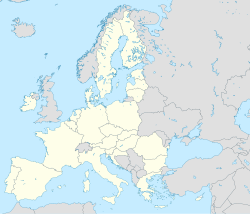 | |
 Trg republike 3 building (right) in Ljubljana, seat of ACER since 2011 | |
| Agency overview | |
|---|---|
| Formed | 3 September 2009 |
| Jurisdiction | European Union |
| Headquarters | Ljubljana, Slovenia |
| Employees | 191 (2024) [1] |
| Agency executive |
|
| Key document | |
| Website | www.acer.europa.eu/ |
| Map | |
The European Union Agency for the Cooperation of Energy Regulators (ACER) is an Agency of the European Union created under the terms of the Third Energy Package of 2009. [2] It was established in 2010 and has its seat in Ljubljana, Slovenia. [3]
Contents
- Tasks
- Capacity calculation regions
- Market transparency and price regulation
- Market Correction Mechanism
- LNG Price Assessment and Benchmark
- REMIT Data Reference Centre
- See also
- References
- External links
The basis for the establishment of ACER is Regulation 713/2009 of the European Parliament and the Council of 13 July 2009. The regulation describes the establishment and the legal status, tasks, organisation and financial provisions. [4] The Agency's mandate was updated in 2019 by Regulation (EU) 2019/942. [5]
ACER is the second intergovernmental organization headquartered in Slovenia. The first was the International Center for Promotion of Enterprises (ICPE).

